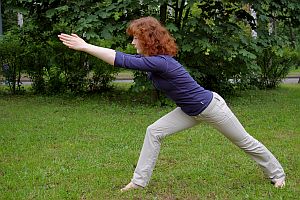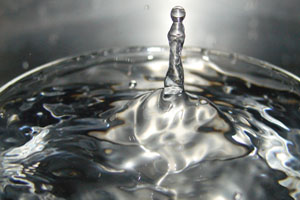Tips and Precautions for Winter Exercise
 For many people, colder temperatures outside—whether at home or while traveling over the winter holidays—can mean big changes in exercise routines. Some will move their workouts indoors or hibernate during the winter months. Others, though, will decide to work with the seasons and find ways to be active outside. If you’re one of those people, this article is for you.
For many people, colder temperatures outside—whether at home or while traveling over the winter holidays—can mean big changes in exercise routines. Some will move their workouts indoors or hibernate during the winter months. Others, though, will decide to work with the seasons and find ways to be active outside. If you’re one of those people, this article is for you.
While there’s certainly no rule against venturing out into the cold for a little bit of exercise, it’s important to be smart about how you do it. Remember to protect yourself from frostbite, hypothermia, and injuries that can come with freezing temperatures. To help you do that, we’ve put together a short checklist that you can use to exercise outdoors safely this winter.
Remember that Cold Weather is Often Dry Weather. Winter weather is often associated with precipitation. However, as the temperatures drop to dangerous lows—close to freezing and below—the opposite is often true regarding humidity. The air will get drier, and even if you don’t sweat as much, you can still lose valuable moisture. When exercising in the cold weather, remember to drink plenty of water, even if you don’t really feel thirsty or sweaty.
Understand the Real Temperature Where You Plan to Exercise. Look up the weather on a website or app before you head out into the cold, but understand the numbers you are looking at. The general weather conditions can differ greatly from place to place locally, even in the same region. Pay especially close attention to wind chill numbers, since the combination of wind and your own movement may lead you to experience lower temperatures. The thermometer may say it’s 35 degrees out, but the wind chill may mean it feels closer to 20 degrees in certain areas.
Dress Appropriately. It may be tempting to bundle up when going out in the cold to work out, but this comes at a cost. Thick, warm clothes will make you sweat more easily, and that sweat can leach heat from your body and allow your temperature to drop to unhealthy levels. The key, as cold weather experts know well, is to dress in layers, starting with a thin synthetic layer of wicking material, then a fleece and finally a thinner waterproof coat. The added benefit to this clothing strategy is that it’s flexible. You can always take off layers if you get too hot.
Warm Up the Extremities. When exercising in the cold weather, pay particular attention to your extremities, which are more vulnerable to frostbite. It’s especially important to cover your fingers and head. If the air is very frigid, cover up your nose and mouth, too: That cold air can damage your lungs and freeze your nose.
Fuel Up. A source of energy is vital to keeping up your metabolism and keeping you warm when out in the cold. Eat a healthy amount of complex carbs and proteins before you go out, and if you’re going to be out for a few hours, then bring a snack along, too. Stay away from sugars and other less dependable sources of energy, if possible.
Start Slow. Stretching and warming up will both make injury less likely and help your metabolism pick up until you are ready for more strenuous work. Always warm up before going out into the winter weather, particularly if you are planning on an intense session with lots of running or heavy exertion. Otherwise, joint and muscle injuries could result.
Know the Danger Signs. Hypothermia and frostbite can creep up on you if you’re not careful. You can defend against the cold better if you recognize the signs. Frostbite occurs on exposed skin like your cheeks, nose, ears, and hands, especially below 20 degrees Fahrenheit. Hypothermia occurs when shivering cannot keep up your core body temperature and your heart and brain begin to shut down. Watch for intense shivering, sudden weariness, slurred words, and trouble with coordination.
Billings and our surrounding areas have had lots of severe cold and snow thus far this winter; be sure to be smart about going outside and take care of your health!
 If you are middle-aged (40-60, by some definitions) or older, here’s 15-second self-test for you. Do you often find yourself needing to sit down or steady yourself against a table when putting on your shoes or stepping into pants? Do you increasingly need to use the armrests of your chair to “push off” when getting up? Do you generally hold on to handrails whenever you go up and down stairs? If you stand with your feet close together, do you feel unsteady and unable to balance yourself properly?
If you are middle-aged (40-60, by some definitions) or older, here’s 15-second self-test for you. Do you often find yourself needing to sit down or steady yourself against a table when putting on your shoes or stepping into pants? Do you increasingly need to use the armrests of your chair to “push off” when getting up? Do you generally hold on to handrails whenever you go up and down stairs? If you stand with your feet close together, do you feel unsteady and unable to balance yourself properly?